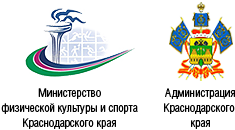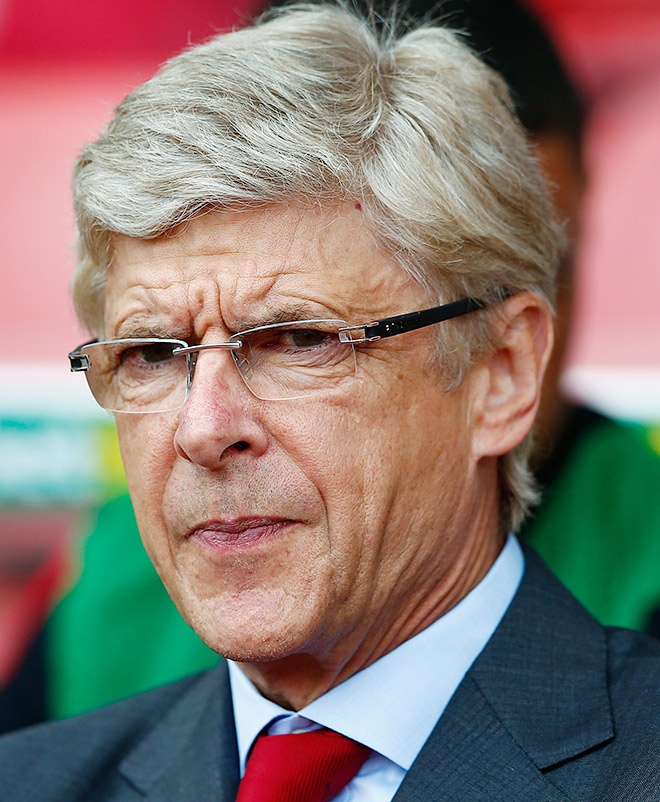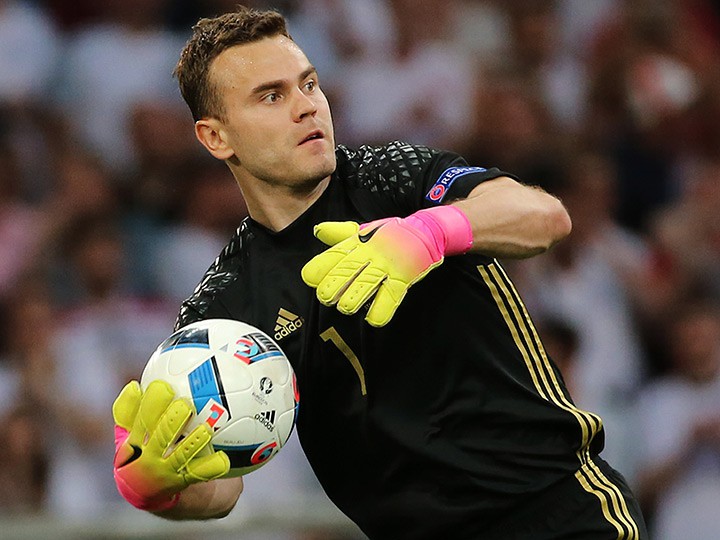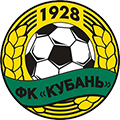Список главных тренеров сборной России по футболу. Список тренеров по футболу сборной россии
Список главных тренеров сборной России по футболу — Википедия (с комментариями)
Материал из Википедии — свободной энциклопедии
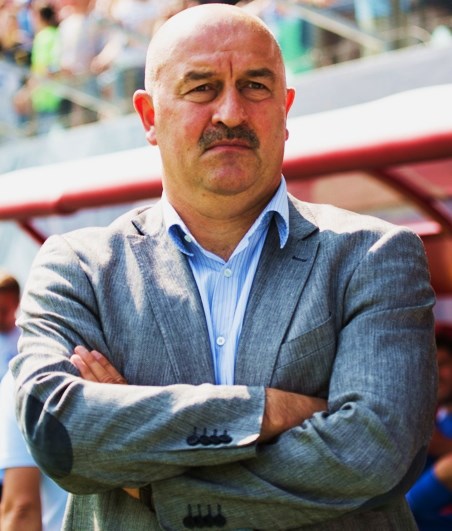 Ниже представлен список главных тренеров национальной сборной России по футболу, их статистика и достижения в сборной.
Ниже представлен список главных тренеров национальной сборной России по футболу, их статистика и достижения в сборной.
Российский футбольный союз был сформирован 2 февраля 1992 года. Первый международный матч сборная России провела 16 августа 1992 года против Мексики под руководством Павла Садырина. За всю историю у сборной России было 13 главных тренеров, среди которых три иностранных специалиста. Также один раз командой руководил исполняющий обязанности главного тренера. Действующим главным тренером сборной с 11 августа 2016 года является Станислав Черчесов.
Самым успешным тренером является нидерландец Гус Хиддинк, при котором сборная выиграла бронзовые медали чемпионата Европы 2008 года. Наибольшее количество матчей (60) Россия провела при тренере Олеге Ивановиче Романцеве, который возглавлял сборную дважды — с 1994 по 1996 год, а также с 1998 по 2002 год. Он также занимает первое место по числу побед — 36.
Список тренеров
Условные обозначения:
- исполняющие обязанности главного тренера
| 1 | 01992-07-16 16 июля 1992 | 01994-07-28 28 июля 1994 | 23 | 12 | 6 | 5 | 52,1 | ЧМ-1994: 3-е место в группе | [1][2] | ||
| 2 |  | 01994-07-28 28 июля 1994 | 01996-06-11 11 июня 1996 | 25 | 17 | 4 | 4 | 68,0 | ЧЕ-1996: 4-е место в группе | [3][4] | |
| 3 | 01996-07-11 11 июля 1996 | 01998-06-19 19 июня 1998 | 20 | 8 | 8 | 4 | 40,0 | [5][6] | |||
| 4 | 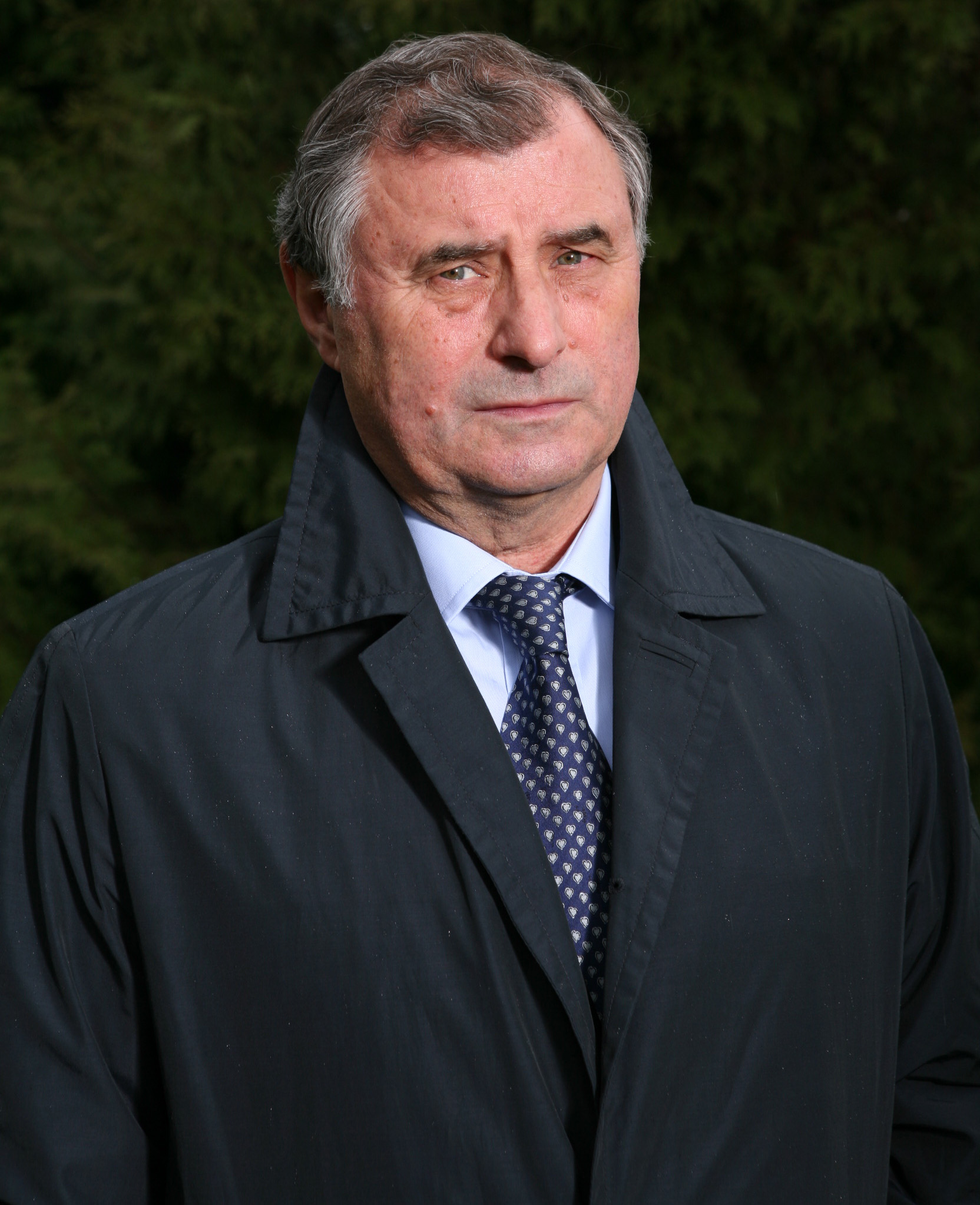 | 01998-07-24 24 июля 1998 | 01998-12-20 20 декабря 1998 | 6 | 0 | 0 | 6 | 0 | [7][8] | ||
| 5 |  | 01998-12-28 28 декабря 1998 | 02002-07-08 8 июля 2002 | 35 | 19 | 10 | 6 | 54,2 | ЧМ-2002: 3-е место в группе | [3][4] | |
| 6 | 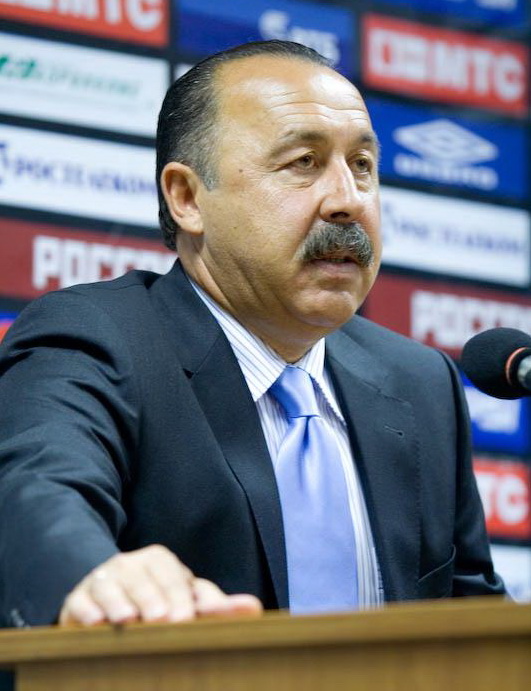 | 02002-07-08 8 июля 2002 | 02003-08-25 25 августа 2003 | 9 | 4 | 2 | 3 | 44,4 | [9][10] | ||
| 7 | 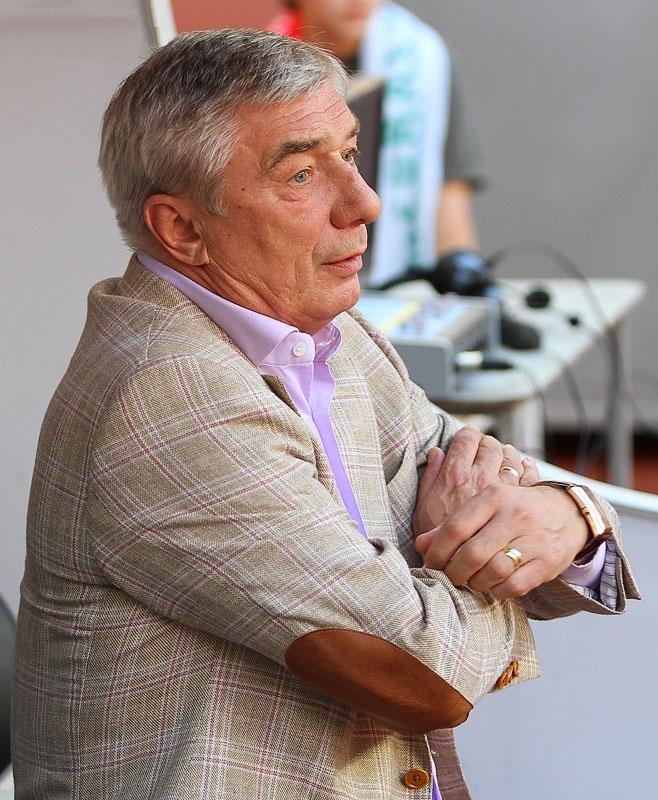 | 02003-08-25 25 августа 2003 | 02005-04-05 5 апреля 2005 | 19 | 8 | 6 | 5 | 42,1 | ЧЕ-2004: 4-е место в группе | [11][12] | |
| 8 | 02005-04-18 18 апреля 2005 | 02005-12-31 31 декабря 2005 | 7 | 3 | 4 | 0 | 42,8 | [13][14] | |||
| и. о. | 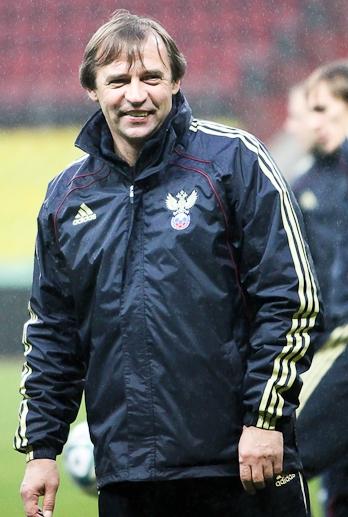 | 02006-01-01 1 января 2006 | 02006-07-09 9 июля 2006 | 2 | 0 | 1 | 1 | 0 | [15][16] | ||
| 9 | 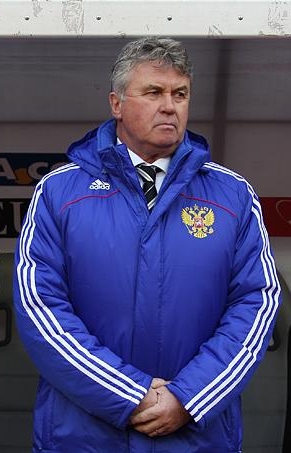 | 02006-07-09 9 июля 2006 | 02010-06-30 30 июня 2010 | 39 | 22 | 7 | 10 | 56,4 | ЧЕ-2008: третье место | [17][18] | |
| 10 | 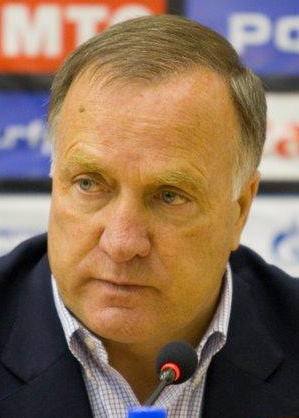 | 02010-07-15 15 июля 2010 | 02012-06-16 16 июня 2012 | 24[a. 1] | 12 | 8 | 4 | 50,0 | ЧЕ-2012: 3-е место в группе | [19][20] | |
| 11 |  | 02012-07-26 26 июля 2012 | 02015-07-14 14 июля 2015 | 33 | 17 | 11 | 5 | 51,5 | ЧМ-2014: 3-е место в группе | [21][22] | |
| 12 | 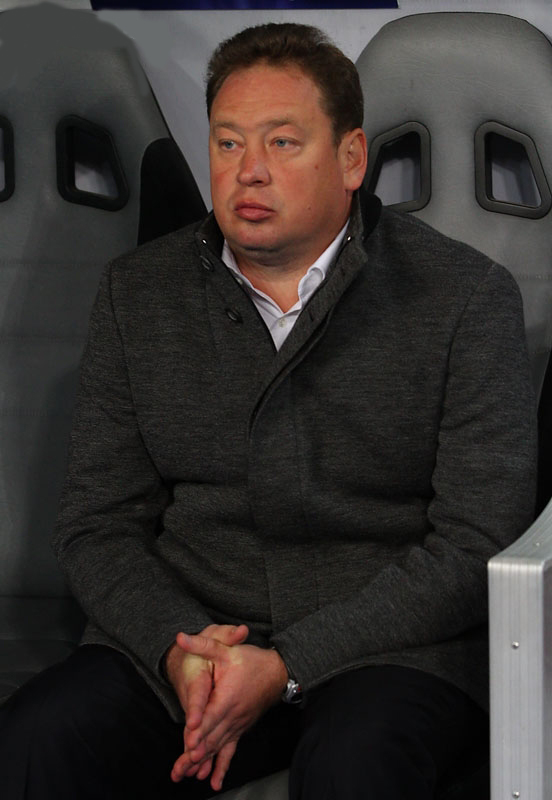 | 02015-08-07 7 августа 2015 | 02016-06-30 30 июня 2016 | 13 | 6 | 2 | 5 | 46,15 | ЧЕ-2016: 4-е место в группе | [23][24] | |
| 13 |  | 02016-08-11 11 августа 2016 | 3 | 1 | 1 | 1 | 33,3 | [25] |
Статистика
Данные приведены по состоянию на 1 сентября 2016
По турнирам
| количество сыгранных матчей | Вколичество выигранных матчей | Нколичество ничьих | Пколичество проигранных матчей |
| Павел Садырин | 23 | 12 | 6 | 4 | 2 | — | — | — | — | — | — | — | — | 8 | 5 | 2 | 1 | 3 | 1 | 0 | 2 |
| Олег Романцев (1-й период) | 25 | 12 | 9 | 1 | 2 | 10 | 8 | 2 | 0 | 3 | 0 | 1 | 2 | — | — | — | — | — | — | — | — |
| Борис Игнатьев | 20 | 10 | 3 | 5 | 2 | — | — | — | — | — | — | — | — | 10 | 5 | 3 | 2 | — | — | — | — |
| Анатолий Бышовец | 6 | 3 | 0 | 0 | 3 | 3 | 0 | 0 | 3 | — | — | — | — | — | — | — | — | — | — | — | — |
| Олег Романцев (2-й период) | 35 | 12 | 6 | 7 | 2 | 10 | 6 | 1 | 3 | — | — | — | — | 10 | 7 | 2 | 1 | 3 | 1 | 0 | 2 |
| Валерий Газзаев | 9 | 4 | 2 | 1 | 1 | 5 | 2 | 1 | 2 | — | — | — | — | — | — | — | — | — | — | — | — |
| Георгий Ярцев | 19 | 5 | 1 | 2 | 2 | 5 | 3 | 2 | 0 | 3 | 1 | 0 | 2 | 6 | 3 | 2 | 1 | — | — | — | — |
| Юрий Сёмин | 7 | 1 | 0 | 1 | 0 | — | — | — | — | — | — | — | — | 6 | 3 | 3 | 0 | — | — | — | — |
| Александр Бородюк | 2 | 2 | 0 | 1 | 1 | — | — | — | — | — | — | — | — | — | — | — | — | — | — | — | — |
| Гус Хиддинк | 39 | 10 | 4 | 3 | 3 | 12 | 7 | 3 | 2 | 5 | 3 | 0 | 2 | 12 | 8 | 1 | 3 | — | — | — | — |
| Дик Адвокат | 24 | 11 | 4 | 5 | 2 | 10 | 7 | 2 | 1 | 3 | 1 | 1 | 1 | — | — | — | — | — | — | — | — |
| Фабио Капелло | 33 | 14 | 8 | 6 | 0 | 6 | 2 | 2 | 2 | — | — | — | — | 10 | 7 | 1 | 2 | 3 | 0 | 2 | 1 |
| Леонид Слуцкий | 13 | 6 | 2 | 1 | 3 | 4 | 4 | 0 | 0 | 3 | 0 | 1 | 2 | — | — | — | — | — | — | — | — |
| Станислав Черчесов | 3 | 3 | 1 | 1 | 1 | — | — | — | — | — | — | — | — | — | — | — | — | — | — | — | — |
По продолжительности пребывания на посту главного тренера
Рекордсменом по продолжительности пребывания на посту главного тренера сборной России является Олег Романцев. Суммарно, если учитывать оба периода его работы, он занимал эту должность 1972 дня[26]. Ниже приведена таблица с указанием продолжительностей работы только главных тренеров сборной, в порядке её уменьшения.
| 1 | Олег Романцев | 1972 | 28 июля 1994 — 11 июня 199628 декабря 1998 — 8 июля 2002 |
| 2 | Гус Хиддинк | 1452 | 9 июля 2006 — 30 июня 2010 |
| 3 | Фабио Капелло | 1083 | 26 июля 2012 — 14 июля 2015 |
| 4 | Павел Садырин | 742 | 16 июля 1992 — 28 июля 1994 |
| 5 | Дик Адвокат | 731 | 15 июля 2010 — 15 июля 2012 |
| 6 | Борис Игнатьев | 708 | 11 июля 1996 — 19 июня 1998 |
| 7 | Георгий Ярцев | 589 | 25 августа 2003 — 5 апреля 2005 |
| 8 | Валерий Газзаев | 413 | 8 июля 2002 — 25 августа 2003 |
| 9 | Леонид Слуцкий | 343 | 7 августа 2015 — 30 июня 2016 |
| 10 | Юрий Сёмин | 257 | 18 апреля 2005 — 31 декабря 2005 |
| 11 | Анатолий Бышовец | 149 | 24 июля 1998 — 20 декабря 1998 |
| 12 | Станислав Черчесов | 668 | 11 августа 2016 — настоящее время |
Напишите отзыв о статье "Список главных тренеров сборной России по футболу"
Примечания
Комментарии
- ↑ С учётом товарищеского матча Литва — Россия (0:0), который состоялся 29 мая 2012 года, но был [www.interfax.ru/sport/262478 лишён] ФИФА статуса официального.
Источники
- ↑ [rusteam.permian.ru/coaches/sadyrin.html Павел Садырин.]. rusteam.permian.ru. Проверено 27 июля 2015.
- ↑ [eu-football.ru/_manager.php?id=536 Павел Фёдорович Садырин.]. eu-football.ru. Проверено 27 июля 2015.
- ↑ 1 2 [rusteam.permian.ru/players/romantsev.html Олег Романцев.]. rusteam.permian.ru. Проверено 27 июля 2015.
- ↑ 1 2 [eu-football.ru/_manager.php?id=524 Олег Иванович Романцев.]. eu-football.ru. Проверено 27 июля 2015.
- ↑ [rusteam.permian.ru/coaches/ignatyev.html Борис Игнатьев.]. rusteam.permian.ru. Проверено 27 июля 2015.
- ↑ [eu-football.ru/_manager.php?id=248 Борис Петрович Игнатьев.]. eu-football.ru. Проверено 27 июля 2015.
- ↑ [rusteam.permian.ru/players/byshovets.html Анатолий Бышовец.]. rusteam.permian.ru. Проверено 27 июля 2015.
- ↑ [eu-football.ru/_manager.php?id=86 Анатолий Фёдорович Бышовец.]. eu-football.ru. Проверено 27 июля 2015.
- ↑ [rusteam.permian.ru/players/gazzaev.html Валерий Газзаев.]. rusteam.permian.ru. Проверено 27 июля 2015.
- ↑ [eu-football.ru/_manager.php?id=172 Валерий Георгиевич Газзаев.]. eu-football.ru. Проверено 27 июля 2015.
- ↑ [rusteam.permian.ru/players/yartsev.html Георгий Ярцев.]. rusteam.permian.ru. Проверено 27 июля 2015.
- ↑ [eu-football.ru/_manager.php?id=688 Георгий Александрович Ярцев.]. eu-football.ru. Проверено 27 июля 2015.
- ↑ [rusteam.permian.ru/coaches/semin.html Юрий Сёмин.]. rusteam.permian.ru. Проверено 27 июля 2015.
- ↑ [eu-football.ru/_manager.php?id=1173 Юрий Павлович Сёмин.]. eu-football.ru. Проверено 27 июля 2015.
- ↑ [rusteam.permian.ru/players/boroduk.html Александр Бородюк.]. rusteam.permian.ru. Проверено 27 июля 2015.
- ↑ [eu-football.ru/_manager.php?id=1174 Александр Генрихович Бородюк.]. eu-football.ru. Проверено 27 июля 2015.
- ↑ [rusteam.permian.ru/coaches/hiddink.html Гус Хиддинк.]. rusteam.permian.ru. Проверено 27 июля 2015.
- ↑ [eu-football.ru/_manager.php?id=233 Гус Хиддинк.]. eu-football.ru. Проверено 27 июля 2015.
- ↑ [rusteam.permian.ru/coaches/advocaat.html Дик Адвокат.]. rusteam.permian.ru. Проверено 27 июля 2015.
- ↑ [eu-football.ru/_manager.php?id=4 Дик Адвокат.]. eu-football.ru. Проверено 27 июля 2015.
- ↑ [rusteam.permian.ru/coaches/kapello.html Фабио Капелло.]. rusteam.permian.ru. Проверено 27 июля 2015.
- ↑ [eu-football.ru/_manager.php?id=1256 Фабио Капелло.]. eu-football.ru. Проверено 27 июля 2015.
- ↑ [rusteam.permian.ru/coaches/slutskiy.html Леонид Слуцкий]. rusteam.permian.ru. Проверено 18 июля 2016.
- ↑ [eu-football.ru/_manager.php?id=1450 Леонид Слуцкий.]. eu-football.ru. Проверено 30 марта 2016.
- ↑ [rg.ru/2016/08/11/stanislav-cherchesov-vozglavil-sbornuiu-rossii-po-futbolu.html Станислав Черчесов возглавил сборную России по футболу]. RG.RU. Проверено 11 августа 2016.
- ↑ [www.sport-express.ru/football/rusteam/reviews/814883/8082737884/ 10 главных тренеров сборной России.]. sport-express.ru. Проверено 10 сентября 2015.
Ссылки
- [rusteam.permian.ru/coaches/index.html Тренеры сборной России на сайте rusteam.permian.ru]
- [eu-football.ru/_managers.php?im=251 Тренеры сборной России на сайте eu-football.ru]
Отрывок, характеризующий Список главных тренеров сборной России по футболу
Бенигсен от Горок спустился по большой дороге к мосту, на который Пьеру указывал офицер с кургана как на центр позиции и у которого на берегу лежали ряды скошенной, пахнувшей сеном травы. Через мост они проехали в село Бородино, оттуда повернули влево и мимо огромного количества войск и пушек выехали к высокому кургану, на котором копали землю ополченцы. Это был редут, еще не имевший названия, потом получивший название редута Раевского, или курганной батареи. Пьер не обратил особенного внимания на этот редут. Он не знал, что это место будет для него памятнее всех мест Бородинского поля. Потом они поехали через овраг к Семеновскому, в котором солдаты растаскивали последние бревна изб и овинов. Потом под гору и на гору они проехали вперед через поломанную, выбитую, как градом, рожь, по вновь проложенной артиллерией по колчам пашни дороге на флеши [род укрепления. (Примеч. Л.Н. Толстого.) ], тоже тогда еще копаемые. Бенигсен остановился на флешах и стал смотреть вперед на (бывший еще вчера нашим) Шевардинский редут, на котором виднелось несколько всадников. Офицеры говорили, что там был Наполеон или Мюрат. И все жадно смотрели на эту кучку всадников. Пьер тоже смотрел туда, стараясь угадать, который из этих чуть видневшихся людей был Наполеон. Наконец всадники съехали с кургана и скрылись. Бенигсен обратился к подошедшему к нему генералу и стал пояснять все положение наших войск. Пьер слушал слова Бенигсена, напрягая все свои умственные силы к тому, чтоб понять сущность предстоящего сражения, но с огорчением чувствовал, что умственные способности его для этого были недостаточны. Он ничего не понимал. Бенигсен перестал говорить, и заметив фигуру прислушивавшегося Пьера, сказал вдруг, обращаясь к нему: – Вам, я думаю, неинтересно? – Ах, напротив, очень интересно, – повторил Пьер не совсем правдиво. С флеш они поехали еще левее дорогою, вьющеюся по частому, невысокому березовому лесу. В середине этого леса выскочил перед ними на дорогу коричневый с белыми ногами заяц и, испуганный топотом большого количества лошадей, так растерялся, что долго прыгал по дороге впереди их, возбуждая общее внимание и смех, и, только когда в несколько голосов крикнули на него, бросился в сторону и скрылся в чаще. Проехав версты две по лесу, они выехали на поляну, на которой стояли войска корпуса Тучкова, долженствовавшего защищать левый фланг. Здесь, на крайнем левом фланге, Бенигсен много и горячо говорил и сделал, как казалось Пьеру, важное в военном отношении распоряжение. Впереди расположения войск Тучкова находилось возвышение. Это возвышение не было занято войсками. Бенигсен громко критиковал эту ошибку, говоря, что было безумно оставить незанятою командующую местностью высоту и поставить войска под нею. Некоторые генералы выражали то же мнение. Один в особенности с воинской горячностью говорил о том, что их поставили тут на убой. Бенигсен приказал своим именем передвинуть войска на высоту. Распоряжение это на левом фланге еще более заставило Пьера усумниться в его способности понять военное дело. Слушая Бенигсена и генералов, осуждавших положение войск под горою, Пьер вполне понимал их и разделял их мнение; но именно вследствие этого он не мог понять, каким образом мог тот, кто поставил их тут под горою, сделать такую очевидную и грубую ошибку. Пьер не знал того, что войска эти были поставлены не для защиты позиции, как думал Бенигсен, а были поставлены в скрытое место для засады, то есть для того, чтобы быть незамеченными и вдруг ударить на подвигавшегося неприятеля. Бенигсен не знал этого и передвинул войска вперед по особенным соображениям, не сказав об этом главнокомандующему.
Князь Андрей в этот ясный августовский вечер 25 го числа лежал, облокотившись на руку, в разломанном сарае деревни Князькова, на краю расположения своего полка. В отверстие сломанной стены он смотрел на шедшую вдоль по забору полосу тридцатилетних берез с обрубленными нижними сучьями, на пашню с разбитыми на ней копнами овса и на кустарник, по которому виднелись дымы костров – солдатских кухонь. Как ни тесна и никому не нужна и ни тяжка теперь казалась князю Андрею его жизнь, он так же, как и семь лет тому назад в Аустерлице накануне сражения, чувствовал себя взволнованным и раздраженным. Приказания на завтрашнее сражение были отданы и получены им. Делать ему было больше нечего. Но мысли самые простые, ясные и потому страшные мысли не оставляли его в покое. Он знал, что завтрашнее сражение должно было быть самое страшное изо всех тех, в которых он участвовал, и возможность смерти в первый раз в его жизни, без всякого отношения к житейскому, без соображений о том, как она подействует на других, а только по отношению к нему самому, к его душе, с живостью, почти с достоверностью, просто и ужасно, представилась ему. И с высоты этого представления все, что прежде мучило и занимало его, вдруг осветилось холодным белым светом, без теней, без перспективы, без различия очертаний. Вся жизнь представилась ему волшебным фонарем, в который он долго смотрел сквозь стекло и при искусственном освещении. Теперь он увидал вдруг, без стекла, при ярком дневном свете, эти дурно намалеванные картины. «Да, да, вот они те волновавшие и восхищавшие и мучившие меня ложные образы, – говорил он себе, перебирая в своем воображении главные картины своего волшебного фонаря жизни, глядя теперь на них при этом холодном белом свете дня – ясной мысли о смерти. – Вот они, эти грубо намалеванные фигуры, которые представлялись чем то прекрасным и таинственным. Слава, общественное благо, любовь к женщине, самое отечество – как велики казались мне эти картины, какого глубокого смысла казались они исполненными! И все это так просто, бледно и грубо при холодном белом свете того утра, которое, я чувствую, поднимается для меня». Три главные горя его жизни в особенности останавливали его внимание. Его любовь к женщине, смерть его отца и французское нашествие, захватившее половину России. «Любовь!.. Эта девочка, мне казавшаяся преисполненною таинственных сил. Как же я любил ее! я делал поэтические планы о любви, о счастии с нею. О милый мальчик! – с злостью вслух проговорил он. – Как же! я верил в какую то идеальную любовь, которая должна была мне сохранить ее верность за целый год моего отсутствия! Как нежный голубок басни, она должна была зачахнуть в разлуке со мной. А все это гораздо проще… Все это ужасно просто, гадко! Отец тоже строил в Лысых Горах и думал, что это его место, его земля, его воздух, его мужики; а пришел Наполеон и, не зная об его существовании, как щепку с дороги, столкнул его, и развалились его Лысые Горы и вся его жизнь. А княжна Марья говорит, что это испытание, посланное свыше. Для чего же испытание, когда его уже нет и не будет? никогда больше не будет! Его нет! Так кому же это испытание? Отечество, погибель Москвы! А завтра меня убьет – и не француз даже, а свой, как вчера разрядил солдат ружье около моего уха, и придут французы, возьмут меня за ноги и за голову и швырнут в яму, чтоб я не вонял им под носом, и сложатся новые условия жизни, которые будут также привычны для других, и я не буду знать про них, и меня не будет». Он поглядел на полосу берез с их неподвижной желтизной, зеленью и белой корой, блестящих на солнце. «Умереть, чтобы меня убили завтра, чтобы меня не было… чтобы все это было, а меня бы не было». Он живо представил себе отсутствие себя в этой жизни. И эти березы с их светом и тенью, и эти курчавые облака, и этот дым костров – все вокруг преобразилось для него и показалось чем то страшным и угрожающим. Мороз пробежал по его спине. Быстро встав, он вышел из сарая и стал ходить. За сараем послышались голоса. – Кто там? – окликнул князь Андрей. Красноносый капитан Тимохин, бывший ротный командир Долохова, теперь, за убылью офицеров, батальонный командир, робко вошел в сарай. За ним вошли адъютант и казначей полка. Князь Андрей поспешно встал, выслушал то, что по службе имели передать ему офицеры, передал им еще некоторые приказания и сбирался отпустить их, когда из за сарая послышался знакомый, пришепетывающий голос. – Que diable! [Черт возьми!] – сказал голос человека, стукнувшегося обо что то. Князь Андрей, выглянув из сарая, увидал подходящего к нему Пьера, который споткнулся на лежавшую жердь и чуть не упал. Князю Андрею вообще неприятно было видеть людей из своего мира, в особенности же Пьера, который напоминал ему все те тяжелые минуты, которые он пережил в последний приезд в Москву. – А, вот как! – сказал он. – Какими судьбами? Вот не ждал. В то время как он говорил это, в глазах его и выражении всего лица было больше чем сухость – была враждебность, которую тотчас же заметил Пьер. Он подходил к сараю в самом оживленном состоянии духа, но, увидав выражение лица князя Андрея, он почувствовал себя стесненным и неловким. – Я приехал… так… знаете… приехал… мне интересно, – сказал Пьер, уже столько раз в этот день бессмысленно повторявший это слово «интересно». – Я хотел видеть сражение. – Да, да, а братья масоны что говорят о войне? Как предотвратить ее? – сказал князь Андрей насмешливо. – Ну что Москва? Что мои? Приехали ли наконец в Москву? – спросил он серьезно. – Приехали. Жюли Друбецкая говорила мне. Я поехал к ним и не застал. Они уехали в подмосковную.
Офицеры хотели откланяться, но князь Андрей, как будто не желая оставаться с глазу на глаз с своим другом, предложил им посидеть и напиться чаю. Подали скамейки и чай. Офицеры не без удивления смотрели на толстую, громадную фигуру Пьера и слушали его рассказы о Москве и о расположении наших войск, которые ему удалось объездить. Князь Андрей молчал, и лицо его так было неприятно, что Пьер обращался более к добродушному батальонному командиру Тимохину, чем к Болконскому.
wiki-org.ru
Список главных тренеров сборной России по футболу Вики
 Садырин, ПавелПавел Садырин
Садырин, ПавелПавел Садырин 
 Романцев, ОлегОлег Романцев
Романцев, ОлегОлег Романцев 
 Игнатьев, БорисБорис Игнатьев
Игнатьев, БорисБорис Игнатьев 
 Бышовец, АнатолийАнатолий Бышовец
Бышовец, АнатолийАнатолий Бышовец 
 Романцев, ОлегОлег Романцев
Романцев, ОлегОлег Романцев 
 Газзаев, ВалерийВалерий Газзаев
Газзаев, ВалерийВалерий Газзаев 
 Ярцев, ГеоргийГеоргий Ярцев
Ярцев, ГеоргийГеоргий Ярцев 
 Сёмин, ЮрийЮрий Сёмин
Сёмин, ЮрийЮрий Сёмин 
 Бородюк, АлександрАлександр Бородюк
Бородюк, АлександрАлександр Бородюк 
 Хиддинк, ГусГус Хиддинк
Хиддинк, ГусГус Хиддинк 
 Адвокат, ДикДик Адвокат
Адвокат, ДикДик Адвокат 
 Капелло, ФабиоФабио Капелло
Капелло, ФабиоФабио Капелло 
 Слуцкий, ЛеонидЛеонид Слуцкий
Слуцкий, ЛеонидЛеонид Слуцкий 
 Черчесов, СтаниславСтанислав Черчесов
Черчесов, СтаниславСтанислав Черчесов 
ru.wikibedia.ru
Список главных тренеров сборной России по футболу
1. Черчесов, Станислав Саламович – Stanislav Salamovich Cherchesov is a Russian football manager and former international goalkeeper for USSR and Russia of Ossetian origin. In August 2016 he was appointed as coach of the Russia national football team with a target of reaching the semi-finals of the 2018 FIFA World Cup. Cherchesov played for Russia at the 1994 and 2002 World Cups and he made 39 appearances for a national team. Cherchesov also made one appearance for the FIFA team in the charity game against America in 1995, Cherchesov was the manager of FC Kufstein from January to November 2004 and the manager of FC Wacker Tirol from November 2004 to May 2006. In June 2006 – June 2007 he was the director of FC Spartak Moscow. Since 19 June 2007 and up to 14 August 2008 he was the manager of FC Spartak Moscow, manager of Amkar Perm since June 2013 to April 2014. On 8 April 2014 Cherchesov leaves Amkar Perm On 9 April 2014 Cherchesov was named as manager of FC Dynamo Moscow replacing Dan Petrescu and he left Dynamo by mutual consent on 13 July 2015. On 6 October 2015 he became the manager of Polish side Legia Warsaw, Cherchesov made 142 appearances for Spartak Moscow. As of match played 28 March 2017 and his son is also a goalkeeper, he has been on the roster of FC Dynamo Moscow since the 2014–15 season, but is yet to make his debut on the professional level. Profile at RussiaTeam Stanislav Cherchesov – official fan website Official website of Stanislav Cherchesov
2. Сборная России по футболу – The Russia national football team represents Russia in association football and is controlled by the Russian Football Union, the governing body for football in Russia. Russias home grounds are Otkrytie Arena, Luzhniki Stadium and Lokomotiv Stadium, Russia qualified for three World Cups, and they have automatically qualified for 2018 as hosts. They have also qualified for five European Championships, led by manager Pavel Sadyrin, Russia were in Group 5 for the qualification campaign for the 1994 FIFA World Cup which consisted of Greece, Iceland, Hungary and Luxembourg. The suspension of the Federal Republic of Yugoslavia reduced the group to five teams, Russia eventually qualified alongside Greece with six wins and two draws. Russia went to the USA to start a new era of Russian football as an independent country, in the final tournament, Russia was drawn into group B with Cameroon, Sweden, and Brazil. This was considered a group with Russia having limited chances of qualifying for the second round. In their first two games Russia lost 2–0 to Brazil and 3–1 to Sweden, teetering on elimination, Russia defeated Cameroon 6–1 with Oleg Salenko scoring record five goals in a single match. Russia was eliminated from the tournament with three points from one win and two losses, Sadyrin was later sacked following what was a poor performance. After Sadyrin was sacked, Oleg Romantsev was appointed coach to lead Russia to Euro 96, Romantsev was expected to qualify Russia for the final tournament and perform well. In his squad he selected many players from the 1994 FIFA World Cup such as Viktor Onopko, Aleksandr Mostovoi, Vladimir Beschastnykh, and Valery Karpin. During qualifying, Russia overcame Scotland, Greece, Finland, San Marino, in the final tournament Russia was in Group C with Germany, Czech Republic, and Italy. Group C was considered the group of death with Russia dubbed the weakest team, Russias last game against the Czech Republic ended 3–3. Germany and Czech Republic went on to meet in the final, in the qualifying stage Russia was in Group 5 with Bulgaria, Israel, Cyprus, and Luxembourg. Russia and Bulgaria were considered the two contenders to qualify from the group with Israel considered a minor threat. Russia began the campaign with two victories against Cyprus and Luxembourg and two draws against Israel and Cyprus and they continued with victories against Luxembourg and Israel. Russia suffered their only defeat of the campaign with a 1–0 loss to Bulgaria and they ended the campaign with a 4–2 victory in the return game over Bulgaria and qualify for the play-off spot. In the play-offs, Russia was drawn with Italy, in the first leg Russia drew 1–1. In the away leg, Russia were defeated 1–0 and failed to qualify for the World Cup, after failing to qualify for the World Cup in France, Russia were determined to qualify for the UEFA Euro 2000 co-hosted by Belgium and the Netherlands
3. Российский футбольный союз – The Russian Football Union is the official governing body of the sport of football in the Russian Federation. With headquarters in Moscow, it organizes Russian amateur and professional football, including the mens, womens, youth, beach football, futsal, the RFS sanctions referees and football tournaments for Russian Football Premier League and most football leagues in Russia. The RFS is governed by a board of directors led by a chairman, Nikita Simonyan, the RFS is a member of international football bodies FIFA and UEFA, and also has a relationship with the International Olympic Committee. The All-Russian Football Union was created on 19 January 1912 and in the year was admitted to FIFA. The Unions initially consisted of 52 organizations across the Russian Empire, All-Russian Football Union was the organizer of Russian Empire national football team which played 16 internationals between 1910 and 1914. In 1934, the Football Federation of USSR was formed initially under the name the Football Section of Soviet Union, the organization of it was in accordance with the Declaration of the All-Union Council of Fitness Culture of USSR on December 27,1934. The Section was admitted to FIFA as the Soviet organization in 1946, later the Section was reorganized as the Football Federation of USSR. Concurrently with the Section and later Federation until 1972 there operated the Football Directorate of the Soviet Sport Committee that was subordinated directly to the Soviet Ministry of Sport, the Directorate was never recognized on the international level. In July 1992, the Russian national football team was formed
4. Сборная Мексики по футболу – The Mexico national football team represents Mexico in international football. Mexicos home stadium is the Estadio Azteca in Mexico City, Mexico has qualified to fifteen World Cups and has qualified consecutively since 1994, making it one of six countries to do so. The Mexico national team, along with Brazil and Germany, are the nations to make it out of the group stage over the last six World Cups. Mexico played France in the very first match of the first World Cup on 13 July 1930, Mexicos best progression in World Cups has been reaching the quarter-finals in both the 1970 and 1986 World Cups, both of which were staged on Mexican soil. Mexico is the team from CONCACAF to have won an official FIFA competition. Football in Mexico was first organized in the early 20th century by European immigrant groups, notably miners from Cornwall, England, Mexicos first match was played against Guatemala, which Mexico won 3–2. A series of friendlies were played against the national representation of Guatemala on 9,12 and 16 December 1923. The match on 9 December was played in Parque España which Mexico won 2–1, on 12 December, the match ended in a 2–0 win for Mexico, and the final game of the series ended in a 3–3 draw. The manager for this team was Rafael Garza Gutiérrez and it would be another four years before the national team would be represented in international friendlies. On 19 June 1927, Mexico faced Spain, drawing 3–3, during this series, the squad also played against the Uruguayan club Nacional de Montevideo, losing 1–3. In 1927, the governing body of football in Mexico was founded. The 1928 Summer Olympics was Mexicos first international tournament, where Mexico lost to Spain 1–7 in the round of 16, Mexico participated in the 1930 FIFA World Cup in Uruguay, grouped with Argentina, Chile, and France. Mexicos first match was a 4–1 loss to France, with Mexicos first World Cup goal by Juan Carreño, in their second match, Mexico fell to Chile 3–0. Mexicos third match, against Argentina, featured the first penalty of the tournament, Mexico did not appear again in a FIFA World Cup tournament until the 1950 World Cup. Before 1970, Mexico struggled to make much of an impact in the World Cup and it was by far the strongest team in the North American Football Confederation and its successor, CONACAF, but found it difficult to compete against European and South American teams. However, goalkeeper Antonio Carbajal has the distinction of being the first player ever to appear in five consecutive World Cups, in 1965, Mexico won the 1965 CONCACAF Championship to become continental champions for the first time. In 1970, Mexico hosted the World Cup and kicked off their campaign with a draw against the Soviet Union. This was followed by a 4–0 win over El Salvador, Mexico advanced to the next round with a victory against Belgium
5. Хиддинк, Гус – Guus Hiddink is a Dutch football manager and former player. Hiddink enjoyed a career playing as a midfielder in his native Netherlands, playing for sides such as De Graafschap and NEC Nijmegen. In March 1987, Hiddink was appointed PSV manager after previously serving as assistant, Hiddinks PSV side won three consecutive Eredivisie titles, three consecutive KNVB Cups and the European Cup in the historic Treble-winning season of 1987–88. Hiddink spent one season at Istanbul side Fenerbahçe, then the following season was appointed manager of Valencia. He returned to the Mestalla in March 1994, where he stayed for the rest of the 1993–94 season. Hiddink then took charge of the Dutch national team in January 1995, leading the Dutch to the quarter-finals of UEFA Euro 1996 and he resigned as Netherlands manager after the World Cup, where he was then appointed manager of Spanish giants Real Madrid. His time in Madrid ended prematurely after he was sacked in February 1999 as Real were struggling in the league and he took over the reins at fellow La Liga side Real Betis in February 2000, but was sacked just three months later, following the seasons conclusion. The lure of taking another team to a World Cup led to Hiddink taking the South Korea national team job in January 2001, South Korea were joint hosts of the 2002 World Cup, so expectations were high. He led South Korea to a historic 4th-placed finish and became a hero there. Hiddink returned to the Netherlands to rejoin PSV after the conclusion of the World Cup, during his second spell, he won three more Eredivise titles and another KNVB Cup, making him the most successful football manager in Dutch history. In July 2005, Hiddink was appointed manager of the Australian national team, serving as manager of both PSV and Australia simultaneously. He led Australia to qualify for their first World Cup in 32 years, while at the 2006 World Cup itself, he led the nation to the knockout stages, following the World Cup, he joined the Russian national team. Russia scraped through qualification at the expense of England, ultimately reaching the semi-finals of Euro 2008, in February 2009, while still managing Russia, Hiddink was appointed interim manager of English club Chelsea. He enjoyed success during his stay at Stamford Bridge, winning the FA Cup. Meanwhile, after Russia failed to qualify for the 2010 World Cup and he returned to Turkey as Turkish national team manager, but his time in charge ended two years later after the nation failed to qualify for Euro 2012. In February 2012, Hiddink made a return to club management, after a period of relative success, Hiddink left Anzhi in July 2013. Following the 2014 FIFA World Cup, Hiddink succeeded Louis van Gaal as Dutch national team manager and his time at the helm ended, however, as the Netherlands were struggling to qualify for Euro 2016, he was subsequently relieved of his post and replaced by Danny Blind. Hiddink was born in Varsseveld and started his career as a player in the side of amateur club SC Varsseveld
6. Чемпионат Европы по футболу 2008 – It took place in Austria and Switzerland from 7 to 29 June 2008. The tournament was won by Spain, who defeated Germany 1–0 in the final, Spain were only the second nation to win all their group stage fixtures and then the European Championship itself - an accomplishment matched by France in 1984. Spain were also the first team since Germany in 1996 to win the tournament undefeated, Greece were the defending champions going into the tournament, having won UEFA Euro 2004. They recorded the worst finish in Euro 2008, losing their three fixtures and collecting the least amount of prize money. Throughout 31 matches, the participating nations totalled 77 goals, the same as the previous tournament, Austria and Switzerland automatically qualified as hosts, the remaining 14 teams were determined through qualifying matches, which began in August 2006. As European champions, Spain earned the right to compete for the 2009 FIFA Confederations Cup in South Africa, Austria had previously bid to host Euro 2004 with Hungary, but they eventually lost out to Portugal. Austria/Switzerland, Greece/Turkey, and Hungary were recommended before the final vote, Greece and Turkey were rejected and let Hungary and Austria/Switzerland battle for the win. The Austria/Switzerland bid is the successful joint bid in the competitions history, following the UEFA Euro 2000 hosted by Belgium. The following tournament, held in Poland and Ukraine, became the third jointly hosted tournament, qualification for Euro 2008 started in August 2006, just over a month after the end of the 2006 FIFA World Cup. England was the only seeded team not to qualify for the tournament proper, in contrast, Germany and Portugal were deemed to have an easy draw, as the tournament structure meant they could not meet Italy, France, the Netherlands or Spain until the final. In the group stage, Croatia, Spain and the Netherlands all qualified with maximum points, Austria and Switzerland were not expected to progress, despite the advantage of being the hosts. In Group A, the Swiss lost their captain, Alexander Frei, to injury in their first game and became the first team to be eliminated from the tournament, Switzerland managed to beat the group winner Portugal in their last game. In Group B, Austria managed to set up a final game against Germany. However, they lost by one goal, making Euro 2008 the first European Championship not to have one of the host nations present in the knockout phase, in the same game, goalkeeper Volkan Demirel was shown a red card for pushing Czech striker Jan Koller to the ground. The Turks joined Portugal as the qualifiers from Group A, France were the high-profile victims of Group C, recording just one point from a goalless draw against Romania in their opening game. Italy beat the French, on the day, to finish on four points. Finally, in Group D, Greece failed to reproduce the form of their shock 2004 win, Russia qualified at the expense of Sweden, after beating them in a final game decider, joining Spain in the knockout phase. Turkey continued their streak of wins, equalising at the end of extra-time against Croatia
7. Романцев, Олег Иванович – Oleg Ivanovich Romantsev is a Soviet/Russian former international footballer and coach. Romantsev was acclaimed for his success with Spartak Moscow, whom he led to a record eight domestic league titles and he is considered by some observers to be the finest coach in the history of Russian football. Oleg Romantsev was born on 4 January 1954 in the selo of Gavrilovsky, Ryazan Oblast, Romantsev joined a local youth team named Metallurg where he played as a striker and within two years was appointed the teams captain. His performances there earned him an invite to play for Avtomobilist, another Krasnoyarsk team and he stayed with Avtomobilist after the tournament where he helped them to third place in the USSR Youth Championship. In 1971, Romantsev was promoted to the team of Avtomobilist. He marked his debut for the team with a goal. Over time, Romantsev eventually underwent a change on the pitch and was converted to a left-back. After impressing Spartak representatives during the match, Romantsev was offered terms, Romantsev had not accepted the offer outright and dismissed Beskovs approach. But Beskov was also the manager of the Soviet Union national team at the time, during this period Beskov was successful in talking Romantsev around and he eventually returned to the Spartak first team. Romantsev would go on to play 180 matches for the club and he was appointed club captain in 1979, and held the position until injuries brought about the end of his playing career in 1983, at the age of just 29. In his time as a player with Spartak, Romantsev won the 1979 Soviet Top League, Romantsev made nine appearances for the Soviet Union national team. He also played six matches and scored one goal for the team at the 1980 Summer Olympics. A year after the end of his career, Spartak Moscows founder Nikolai Starostin offered Romantsev a coaching role at Krasnaya Presnya – a little-known Moscow club in the Soviet Second League. It was here that he first crossed paths with future Russia star Aleksandr Mostovoi, the two quickly forged a close relationship that was to continue long into their professional careers. In an interview with UEFAS Dmitri Rogovitski, Mostovoi said, He was an inexperienced coach back then. He became my father in football, it was thanks to him that I grew into a serious player, Romantsev would ultimately spend three years in charge of Presnya, before spending several months in charge of Spartak Ordzhonikidze in 1988. Later that year, Romantsev returned to the club where he made his name as a player, at the time, it was considered a surprise move. Mostovoi recalled of his arrival, His appointment was unexpected, I was abroad with the youth international team and when we returned home for training, Beskov was gone and Romantsev was there in his place
8. Чемпионат мира по футболу – The championship has been awarded every four years since the inaugural tournament in 1930, except in 1942 and 1946 when it was not held because of the Second World War. The current champion is Germany, which won its title at the 2014 tournament in Brazil. 32 teams, including the qualifying host nation, compete in the tournament phase for the title at venues within the host nation over a period of about a month. The 20 World Cup tournaments have been won by eight different national teams, Brazil have won five times, and they are the only team to have played in every tournament. The worlds first international match was a challenge match played in Glasgow in 1872 between Scotland and England, which ended in a 0–0 draw. The first international tournament, the edition of the British Home Championship. After FIFA was founded in 1904, it tried to arrange an international football tournament between nations outside the Olympic framework in Switzerland in 1906 and these were very early days for international football, and the official history of FIFA describes the competition as having been a failure. At the 1908 Summer Olympics in London, football became an official competition, planned by The Football Association, Englands football governing body, the event was for amateur players only and was regarded suspiciously as a show rather than a competition. Great Britain won the gold medals and they repeated the feat in 1912 in Stockholm. With the Olympic event continuing to be contested only between teams, Sir Thomas Lipton organised the Sir Thomas Lipton Trophy tournament in Turin in 1909. The Lipton tournament was a championship between clubs from different nations, each one of which represented an entire nation. Lipton invited West Auckland, a side from County Durham. West Auckland won the tournament and returned in 1911 to successfully defend their title, in 1914, FIFA agreed to recognise the Olympic tournament as a world football championship for amateurs, and took responsibility for managing the event. This paved the way for the worlds first intercontinental football competition, at the 1920 Summer Olympics, contested by Egypt and 13 European teams, Uruguay won the next two Olympic football tournaments in 1924 and 1928. Those were also the first two world championships, as 1924 was the start of FIFAs professional era. On 28 May 1928, the FIFA Congress in Amsterdam decided to stage a championship itself. With Uruguay now two-time official football world champions and to celebrate their centenary of independence in 1930, indeed, no European country pledged to send a team until two months before the start of the competition. Rimet eventually persuaded teams from Belgium, France, Romania, in total,13 nations took part, seven from South America, four from Europe and two from North America
9. Чемпионат Европы по футболу – Held every four years since 1960, in the even-numbered year between World Cup tournaments, it was originally called the UEFA European Nations Cup, changing to the current name in 1968. Starting with the 1996 tournament, specific championships are often referred to in the form UEFA Euro, prior to entering the tournament all teams other than the host nations compete in a qualifying process. The championship winners earn the opportunity to compete in the following FIFA Confederations Cup, to date, Spain is the only team in history to have won consecutive titles, doing so in 2008 and 2012. It is the second most watched football tournament in the world after the FIFA World Cup, the Euro 2012 final was watched by a global audience of around 300 million. The most recent championship, hosted by France in 2016, was won by Portugal, in honour of Delaunay, the trophy awarded to the champions is named after him. The 1960 tournament, held in France, had four competing in the finals out of 17 that entered the competition. It was won by the Soviet Union, beating Yugoslavia 2–1 in a final in Paris. Spain withdrew from its quarter-final match against the USSR because of two political protests, of the 17 teams that entered the qualifying tournament, notable absentees were England, the Netherlands, West Germany and Italy. The hosts beat the holders, the Soviet Union, 2–1 at the Santiago Bernabéu Stadium in Madrid. The tournament format stayed the same for the 1968 tournament, hosted, for the first and only time a match was decided on a coin toss and the final went to a replay, after the match against Yugoslavia finished 1–1. More teams entered this tournament, a testament to its burgeoning popularity, Belgium hosted the 1972 tournament, which West Germany won, beating the USSR 3–0 in the final, with goals coming from Gerd Müller and Herbert Wimmer at the Heysel Stadium in Brussels. This tournament would provide a taste of things to come, as the German side contained many of the key members of the 1974 FIFA World Cup Champions. The 1976 tournament in Yugoslavia was the last in which four teams took part in the final tournament. Czechoslovakia beat West Germany in the newly introduced penalty shootout, after seven successful conversions, Uli Hoeneß missed, leaving Czechoslovakian Antonín Panenka with the opportunity to score and win the tournament. An audacious chipped shot, described by UEFA as perhaps the most famous spot kick of all time secured the victory as Czechoslovakia won 5–3 on penalties, the competition was expanded to eight teams in the 1980 tournament, again hosted by Italy. It involved a stage, with the winners of the groups going on to contest the final. West Germany won their second European title by beating Belgium 2–1, Horst Hrubesch scored early in the first half before René Vandereycken equalised for Belgium with a penalty in the second half. With two minutes remaining, Hrubesch headed the winner for West Germany from a Karl-Heinz Rummenigge corner, the format also changed, with the top two teams in each group going through to a semi-final stage, instead of the winners of each group going straight into the final
10. Кубок конфедераций – The FIFA Confederations Cup is an international association football tournament for national teams, currently held every four years by FIFA. It is contested by the holders of each of the six championships, along with the FIFA World Cup holder. Since 2005, the tournament has been held in the nation that will host the FIFA World Cup in the following year, acting as a rehearsal for the larger tournament. However,2022 FIFA World Cup host Qatar will not host 2021 FIFA Confederations Cup as announced by FIFA in 2015 due to Qatars high temperatures during the summer period. This is the first edition, since the 2003 FIFA Confederations Cup, the reigning Champion is Brazil who won the 2013 FIFA Confederations Cup, by defeating Spain 3–0 in the final for a record fourth title. They will not be able to defend their title, as they were eliminated by Paraguay in a penalty shoot-out in the Quarter-Finals of the 2015 Copa América. The tournament was organized by and held in Saudi Arabia and called the King Fahd Cup, contested in 1992 and 1995 by the Saudi national side. In 1997, FIFA took over the organization of the tournament, named it the FIFA Confederations Cup, since 2005, it has been held every four years, in the year prior to each World Cup in the host country of the forthcoming World Cup. At the same time, participation was optional for the South American and European champions. Generally, the host nation, the World Cup holders, in those cases where a team meets more than one of the qualification criteria, another team is invited to participate, often the runner-up in a competition that the extra-qualified team won. On four occasions teams have not to participate in the tournament. In 1997, Germany were replaced by 1996 runners-up Czech Republic, and in 2003 they were replaced by Turkey, france,1998 World Cup winners, declined their place in the 1999 Confederations Cup, and were replaced by Brazil, the 1998 World Cup runners-up. Italy, UEFA Euro 2000 runners up, declined their place in the 2003 FIFA Confederations Cup, an earlier tournament existed that invited former World Cup winners, the Mundialito, or Copa de Oro which celebrated the fiftieth anniversary of the first World Cup. Both of these are considered by some to be a form of a precursor to the Confederations Cup. The 8 qualified teams are drawn into two groups, two teams from the same confederation cannot be drawn in a group, except if there are three teams from the same confederation. Every team plays all teams in their group once, for a total three matches. The top two teams of each advance to the semi-finals, with the winners of each group playing the runners-up of the other group. For the knockout stage if the score is drawn at the end of time, extra time is played and followed, if necessary
wikivisually.com

